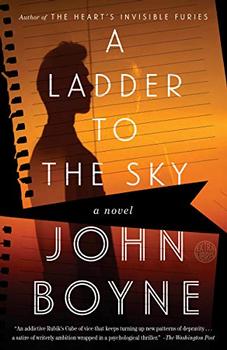Summary | Excerpt | Reading Guide | Reviews | Beyond the book | Read-Alikes | Genres & Themes | Author Bio

Even if it were true — as per F. Scott Fitzgerald — that there are no second acts in American lives, it is the land of opportunity that pretty much birthed the concept of reinvention. Of course its very definition implies that a life story has to be "invented" in the first place, that a carefully constructed narrative can iron out any potential wrinkles.
This is precisely what Pierre Louis Armand de Potter d'Elseghem does when he immigrates from his native Belgium to the United States in the late nineteenth century and decides to wipe the slate clean. Armand de Potter, as he is subsequently referred to, pretends he is a descendant of royalty and a man of substance by presenting erudite lectures on a variety of topics at local institutions. Armand's charms are enough to win him a wife and soon the husband-wife team (Armand and Aimee de Potter) cashes in on Armand's increasingly positive reputation. They set up a travel agency that distinguishes itself from the competition by mixing scholarship with tourism. Business is so good that the de Potters decide to make their home in an expensive villa in Cannes and Armand even indulges his passion of collecting precious antiquities from the faraway places he visits.
Unfortunately the carefully constructed facade begins to crumble when Armand goes missing. This isn't a plot spoiler — he disappears in the very first chapter and the rest of the book travels back and forth in time, both to shed light on the past and to capture the effects of the tragedy on his family. Understandably Aimee struggles with her loss and feelings of sadness mixed with anger: "He who had authored his own impeccable reputation — he'd known all along that he wouldn't be able to keep up the pretense forever, yet she would be required to do just that in his absence." She realizes she has been taken on a "grand tour" of deception and the attendant feelings of violation and humiliation are understandably difficult to ignore: "The truth was not that the person Aimee loved most in the world was guilty of misrepresenting his past, but that she didn't know everything about him."
De Potter's Grand Tour is based on author Joanna Scott's own family history — her great-grandfather also disappeared mysteriously. Even if the text is punctuated with pictures (one assumes they are of the great-grandfather and his charmed travels), it is unclear how much overlap there is between reality and fiction. Regardless, the novel is touted first and foremost as a detective story, but the mystery at its heart is transparent enough to have the narrative's charms lie elsewhere. De Potter's Grand Tour succeeds brilliantly in its evocation of world travel at the turn of the twentieth century — the romance of a bygone era of managed leisure really shines through.
On a larger level, Scott drives home the realization that even in the most serious relationships, what you see is not always what you get. It's a moral that carries greater relevance today where a carefully constructed image for public consumption online can often shield harsher realities. In that sense, while De Potter's Grand Tour is a brilliant satire about one man's desperate attempts to maintain his impeccably authored facade; it's an equally biting sendup of a society that routinely buys into flash without substance. Not much has changed since De Potter's days. It's only the platform that is new.
Image might be everything until the varnish wears thin and life stares back at you — warts and all.
![]() This review was originally published in The BookBrowse Review in October 2014, and has been updated for the
October 2015 edition.
Click here to go to this issue.
This review was originally published in The BookBrowse Review in October 2014, and has been updated for the
October 2015 edition.
Click here to go to this issue.

If you liked De Potter's Grand Tour, try these:

by John Boyne
Published 2019
A seductive, unputdownable psychodrama following one brilliant, ruthless man who will stop at nothing in his pursuit of success.

by Mark Adams
Published 2019
From the acclaimed, bestselling author of Turn Right at Machu Picchu, a fascinating and funny journey into Alaska, America's last frontier, retracing the historic 1899 Harriman Expedition.
A classic is a book that has never finished saying what it has to say
Click Here to find out who said this, as well as discovering other famous literary quotes!
Your guide toexceptional books
BookBrowse seeks out and recommends the best in contemporary fiction and nonfiction—books that not only engage and entertain but also deepen our understanding of ourselves and the world around us.